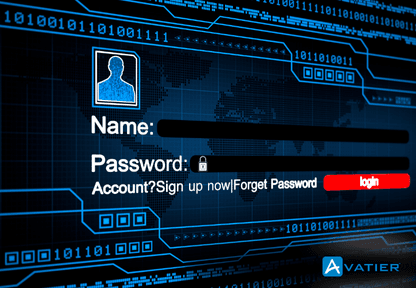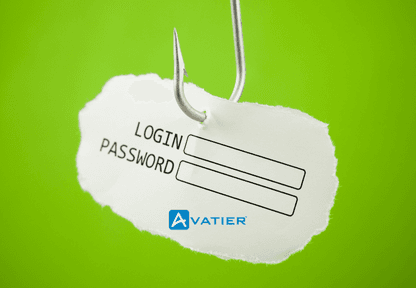August 14, 2025 • Mary Marshall
FISMA Compliance in the Cloud: How Federal Requirements Are Reshaping Infrastructure Security
Discover how FISMA compliance changes cloud security for federal agencies, and how Avatier’s identity solutions meet these requirements.
Federal agencies face unprecedented challenges in securing their cloud infrastructure while maintaining compliance with the Federal Information Security Modernization Act (FISMA). As government organizations accelerate their cloud adoption—with 92% of federal agencies now using multiple cloud platforms according to Okta’s Federal Cloud Security Survey—the intersection of FISMA requirements and cloud infrastructure security has become more critical than ever.
The Evolution of FISMA and Its Impact on Cloud Security
FISMA, originally enacted in 2002 and modernized in 2014, establishes a comprehensive framework to protect government information, operations, and assets against natural or human threats. The legislation mandates that federal agencies implement information security programs that align with standards developed by the National Institute of Standards and Technology (NIST).
Key FISMA Requirements Affecting Cloud Infrastructure
The core FISMA compliance requirements that significantly impact cloud infrastructure security include:
- Risk-Based Security Controls: Agencies must implement security controls based on risk assessments, which becomes more complex in multi-cloud environments.
- Continuous Monitoring: FISMA requires ongoing assessment of security controls rather than point-in-time compliance checks.
- Identity and Access Management: Robust IAM solutions are essential for maintaining appropriate access controls across cloud services.
- Documentation and Reporting: Agencies must maintain comprehensive documentation of security measures and report incidents promptly.
- Authorization to Operate (ATO): Cloud systems must receive formal authorization before processing federal data.
According to NIST Special Publication 800-53, these requirements translate into hundreds of specific security controls across 18 control families, creating significant compliance challenges for agencies leveraging cloud services.
Current Challenges in FISMA Cloud Compliance
Federal agencies face several specific challenges when attempting to maintain FISMA compliance in cloud environments:
1. Shared Responsibility Confusion
Unlike traditional on-premises infrastructure, cloud security operates under a shared responsibility model. However, 63% of federal IT professionals report confusion about security responsibilities between their agency and cloud service providers, according to SailPoint’s Federal Cloud Security Report.
2. Multi-Cloud Complexity
As agencies adopt multiple cloud platforms to meet diverse needs, security teams struggle to implement consistent controls across heterogeneous environments. This complexity increases the risk of compliance gaps and security vulnerabilities.
3. Identity Management Across Cloud Boundaries
Managing identities and access rights across multiple cloud platforms creates significant challenges. In fact, 78% of federal security incidents in cloud environments stem from identity-related issues, highlighting the critical importance of robust identity management solutions.
4. Continuous Monitoring at Scale
FISMA’s requirement for continuous monitoring becomes exponentially more difficult in dynamic cloud environments where resources are constantly being provisioned, modified, and decommissioned.
5. Supply Chain Risk Management
Cloud services often depend on numerous third-party components, creating supply chain risks that must be assessed and mitigated under FISMA requirements.
FISMA and FedRAMP: Understanding the Relationship
The Federal Risk and Authorization Management Program (FedRAMP) was established to standardize security assessment, authorization, and continuous monitoring for cloud products and services. While FedRAMP and FISMA are closely related, they serve different purposes:
- FISMA establishes the overarching framework for federal information security programs
- FedRAMP provides a standardized approach to security assessment and authorization specifically for cloud services
For federal agencies, a FedRAMP-authorized cloud service provides a foundation for FISMA compliance, but doesn’t guarantee it. Agencies must still implement agency-specific controls and maintain appropriate documentation.
Implementing FISMA-Compliant Identity Management in Cloud Environments
Identity and access management (IAM) represents one of the most critical components of FISMA compliance in cloud environments. Avatier’s FISMA Compliance Solutions provide comprehensive capabilities designed specifically to address these requirements.
Key Identity Management Requirements for FISMA Compliance
NIST SP 800-53 includes specific controls related to identity and access management that agencies must implement:
- Access Control (AC): Limiting system access to authorized users and processes
- Identification and Authentication (IA): Verifying the identities of users, processes, or devices
- Audit and Accountability (AU): Tracking and monitoring user activities
- System and Services Acquisition (SA): Managing risks from external providers
Implementing these controls requires a sophisticated identity management approach that works seamlessly across cloud and on-premises environments.
Zero Trust Architecture for FISMA Compliance
The federal government’s move toward Zero Trust Architecture (ZTA) aligns perfectly with FISMA compliance requirements for cloud infrastructure. Zero Trust principles—never trust, always verify—provide a robust framework for securing cloud resources regardless of their location.
By implementing identity-centric controls that verify users and devices before granting access to any resource, agencies can significantly reduce their attack surface in cloud environments. Avatier’s identity management solutions incorporate Zero Trust principles to provide FISMA-compliant security for federal agencies.
Automated Compliance for Cloud Environments
Manual compliance processes cannot keep pace with the dynamic nature of cloud environments. Automation is essential for maintaining continuous FISMA compliance across cloud infrastructure.
Continuous Authorization Through Automation
Avatier’s Access Governance solution enables federal agencies to automate critical compliance processes:
- Automated Access Reviews: Regularly verify that user access rights remain appropriate
- Policy-Based Provisioning: Ensure new access grants comply with established security policies
- Continuous Control Monitoring: Track compliance status in real-time across cloud environments
- Automated Remediation: Quickly address compliance issues when they arise
This automation not only improves security posture but also reduces the administrative burden of FISMA compliance, allowing security teams to focus on strategic initiatives rather than routine compliance tasks.
FISMA Compliance Documentation for Cloud Infrastructure
Documentation represents another significant challenge for federal agencies implementing FISMA in cloud environments. The distributed nature of cloud resources can make it difficult to maintain comprehensive documentation of security controls.
System Security Plans for Cloud Environments
FISMA requires agencies to develop and maintain System Security Plans (SSPs) that document implemented security controls. For cloud-based systems, these plans must clearly delineate:
- Which controls are implemented by the cloud service provider
- Which controls remain the agency’s responsibility
- How inherited controls are verified and monitored
Avatier’s governance solutions help agencies maintain accurate, up-to-date documentation of identity controls across cloud environments, streamlining the FISMA authorization process.
Meeting FISMA’s Authentication Requirements in the Cloud
FISMA compliance requires federal agencies to implement multi-factor authentication (MFA) for accessing sensitive information. In cloud environments, this requirement becomes more complex due to the distributed nature of resources.
Avatier’s Multifactor Authentication integration provides federal agencies with robust MFA capabilities that work seamlessly across cloud platforms. The solution supports:
- Multiple Authentication Factors: Including biometrics, mobile push notifications, and hardware tokens
- Contextual Authentication: Adapting authentication requirements based on risk factors
- Single Sign-On Integration: Providing a seamless user experience while maintaining security
- Offline Authentication Options: Ensuring access even when cloud connectivity is limited
By implementing these capabilities, federal agencies can satisfy FISMA’s stringent authentication requirements while providing a positive user experience.
Preparing for the Future of FISMA in Cloud Environments
As federal cloud adoption continues to accelerate, FISMA requirements are evolving to address emerging threats and technologies. Agencies should prepare for several key trends:
1. Increased Focus on Supply Chain Security
Recent supply chain attacks have highlighted vulnerabilities in the software development lifecycle. Future FISMA guidance will likely include enhanced requirements for assessing and securing the cloud supply chain.
2. AI-Enhanced Security Requirements
As artificial intelligence becomes more prevalent in federal systems, FISMA will adapt to address AI-related security concerns, particularly around data access and model security.
3. Zero Trust Mandates
Executive Order 14028 already requires agencies to develop Zero Trust implementation plans. Future FISMA guidance will likely formalize Zero Trust requirements for cloud infrastructure.
4. Enhanced Incident Reporting
Recent legislation has strengthened cyber incident reporting requirements for federal agencies and critical infrastructure. These requirements will impact how cloud-related security incidents are reported and managed.
Conclusion: A Strategic Approach to FISMA Cloud Compliance
FISMA compliance in cloud environments requires a strategic approach that balances security requirements with operational efficiency. By implementing robust identity management solutions that automate compliance processes and provide comprehensive visibility across cloud platforms, federal agencies can maintain FISMA compliance while taking advantage of cloud capabilities.
Avatier’s FISMA compliance solutions provide federal agencies with the tools they need to address these complex requirements. From automated access reviews to comprehensive documentation capabilities, Avatier helps agencies transform FISMA compliance from a burdensome obligation into a strategic advantage.
For federal CISOs and IT leaders navigating the complexities of FISMA compliance in cloud environments, implementing a comprehensive identity management solution should be a top priority. By establishing strong identity controls that work seamlessly across cloud boundaries, agencies can significantly reduce their risk profile while streamlining compliance processes.
In an era of evolving threats and expanding cloud adoption, FISMA compliance remains a critical foundation for federal cybersecurity. With the right approach and tools, agencies can meet these requirements while leveraging the full potential of cloud infrastructure.









